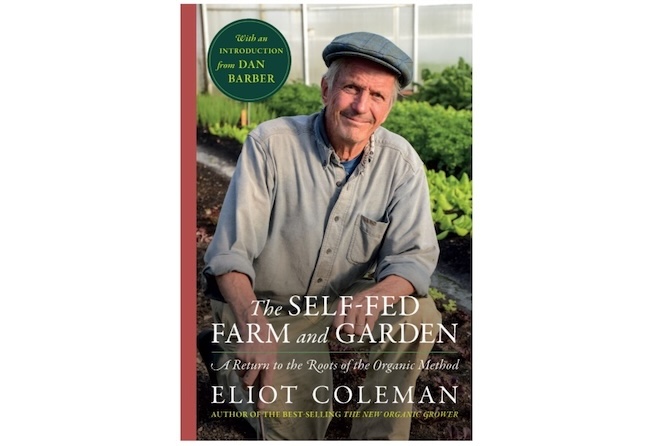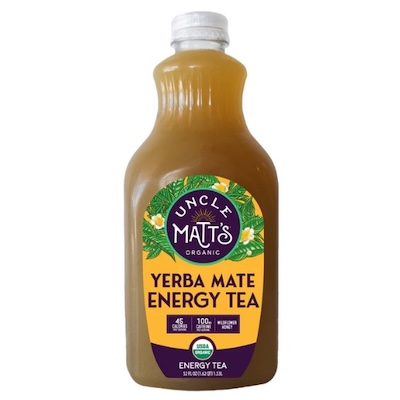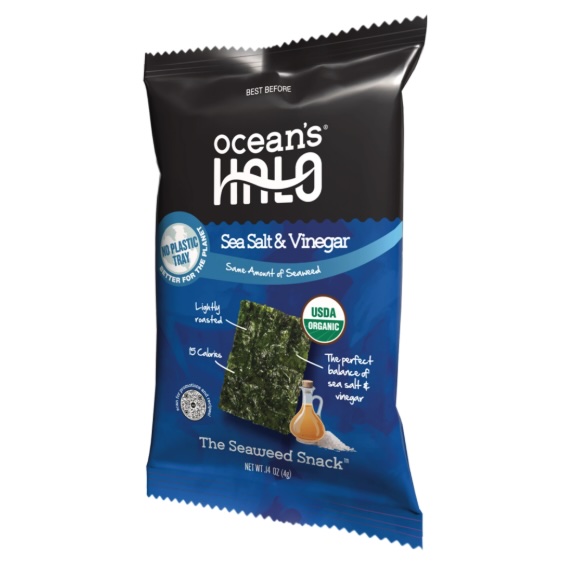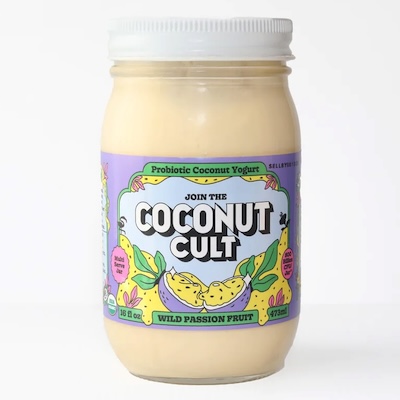
Reclaiming Organic: Eliot Coleman’s Call to End the Input Economy
How Organic Insider operates: We accept no advertising, we have no paywalls and we make our newsletters free to everyone because vital information about our industry needs to get out to as many people as possible. Please consider becoming an Organic Insider+ subscriber, whether you are an individual or a company. Thank you so much.
Eliot Coleman holds a singular place in the history of organic agriculture.
Widely regarded as the most influential and iconic organic farmer in America, he has authored a series of seminal books that reshaped how food is grown across the world. A lifelong scholar of the soil, Eliot Coleman has also built the largest private collection of organic farming literature in existence — more than 3,000 volumes that chronicle the movement’s evolution.
His newest book, The Self-Fed Farm and Garden: A Return to the Roots of the Organic Method, to be released November 4th by Chelsea Green Publishing, has not only drawn sweeping praise from fellow pioneers, but it speaks powerfully to those who care deeply about organic principles, even if they are not growers themselves.
At a moment when organic has become a multi-billion-dollar industry grappling with profound questions of integrity and authenticity, Eliot’s message could not be more timely.
Why did you write this book?
The book brings together ideas that have stayed with me for decades.
When we started farming, we had no money and cleared land from a spruce forest to grow our food. To build fertility, we couldn’t afford purchased inputs like soybean meal or dried blood. Instead, we relied on what the land gave us — waste hay from nearby farms, cover crops, crop rotations and green manures (crops such as clover, vetch and rye that are turned back into the soil while still green to improve soil fertility and structure).
Over time, we realized that everything we needed to sustain fertility was already on our own farm.
That’s a different mindset than what’s common today, where organic farmers heavily rely on external inputs. Why does it matter?
For several reasons.
First, all these external inputs drive up the cost of producing organic food. With hunger on the rise and people complaining about prices, we need to find ways to lower costs and make organic more affordable.
Second, relying on off-farm materials introduces serious quality risks. Farmers can’t always know whether compost or soil amendments are contaminated. In Maine, we’ve seen PFAS pollution devastate organic farms — contamination that many believe came from tainted compost or sludge.
Finally, there’s a mistaken belief that OMRI, which reviews and approves farm inputs, has always been part of organic. It has not.
The USDA’s National Organic Program does not oversee OMRI, yet the organization has enormous influence over what’s allowed on organic farms. That should greatly concern people.
Some may say that your idea of a self-fed farm only works on a small scale. Is that true?
Not at all. Green manures are scale-neutral.
With the right equipment, large farms can plant and manage green manures efficiently and at a much lower cost than buying inputs.
What’s the main takeaway you want readers to have?
Organic farming is drifting away from its original principles, and dependence on external inputs threatens both quality and purity.
Everything needed for a productive, profitable farm — no matter the size — already exists on-farm. Yet, what’s required is the will to return to those practices.
And if organic brands truly want to lower costs and strengthen integrity, they should be urging their farmers to embrace organic farming’s original principles. It is one way to help their margins that they are probably not thinking about.
Eliot Coleman is a living legend and an unquestioned thought leader in our industry, and his newest book should be read by everyone who cares about organic. It can be ordered HERE.

 |
With gratitude, 
Max Goldberg, Founder |
Quick Hits
* Father-daughter duo Vik and Vizan Giri have launched vottera, a new Regenerative Organic Certified® apparel brand that uses cotton grown by 432 indigenous farmers in India.
* In 2025, Dr. Bronner’s dedicated $200,000 to its animal advocacy funding program, bringing the total funding of this program to more than $4.8 million since its inception in 2013.
* The 100% organic farm-to-school lunch programs.
* In Sierra Leone, Tradin Organic is investing in dynamic agroforestry to boost cocoa yields, restore soil fertility and enhance biodiversity.
* Beth Robertson-Martin, co-founder/CEO of Merge Impact, has just launched Perennial Spirits with the first-ever 100% Kernza vodka.
* SIMPLi is partnering with artist Adrianne Paerels to share the story behind its ingredients.
* Out of 400 applicants to participate in the Semrush x LvlUp Ventures Pitch Competition, Lil Bucks took home the grand prize.
* Thrive Market has just added a “GLP-1 Friendly” filter on its site.
* In a program with Re:wild Your Campus, Stanford University has launched an Organic Pilot Project, taking the first steps toward transitioning four lawn sites on campus to organic land care.
* Jean-Georges Vongerichten is expanding his ABC restaurant trilogy into Brooklyn with ABC Kitchens.
* An “Organic Literature” stamp.
* Researchers at Ohio State University found that mushrooms could be used for brain-inspired computing components.
New Organic Products
Yerba Mate Energy Tea from Uncle Matt's Organic
From Uncle Matt's Organic, Yerba Mate Energy Tea is the first of its kind to be deep-steeped, cold-filled and cold-shipped to preserve maximum flavor and functionality. Sweetened with wildflower honey and brewed with yerba mate leaves, lemon juice and green tea, it contains 100mg of naturally derived caffeine. Available for purchase on the company's website and at retailers nationwide, including Whole Foods Market and Sprouts. USDA certified organic, Glyphosate Residue Free certified.Trayless Sea Salt & Vinegar Seaweed Snacks from Ocean's Halo
Ocean's Halo has just introduced its latest flavor of seaweed snacks: Sea Salt & Vinegar, which offers a offers a light salt & tangy vinegar flavor. The seaweed is sustainably grown off the coast of South Korea and packaged with no plastic tray, an effort that has prevented millions of single-use plastics from entering landfills and oceans. USDA certified organic, available now at Walmart.Whole Mushroom Extracts from M2 Ingredients
M2 Ingredients has announced the launch of its next-generation mushroom extracts -- LionXtract™, ReiExtract™, CordyExtract™ and Myco-Six™. All of the whole mushroom extracts are grown and processed entirely in the U.S., and they have been developed for clean taste, superior solubility and consistent performance for beverages, food and other applications. USDA certified organic, Non-GMO, vegan and kosher.Wild Passion Fruit Yogurt from The Coconut Cult
New from The Coconut Cult is Wild Passion Fruit. This organic coconut yogurt is tropical and tangy, and it delivers 50 billion CFUs per ounce through a fermentation process that uses a blend of 16 probiotic species. Available on the company’s website, each jar contains eight servings.
Weekly News Summaries

100+ Organic, Farm and Health Leaders sign a Letter to USDA Secretary with 7 Key Demands
Farm Action, United We Eat and Moms Across America sent a letter to USDA Secretary Brooke Rollins urging her agency to protect farmer livelihoods, rebuild local food systems, and reduce chronic disease through real food.

Buda Juice files for IPO
By Colin Kellaher
The Dallas-based pressed organic juice company will go public on the NYSE and intends to raise approximately $15m.

U.S. Reps. Lawler and Vindman introduce Bipartisan Bill to Strengthen Organic Farming Research and Support America’s Farmers
The Organic Science and Research Investment Act of 2025 is legislation that strengthens America’s organic agriculture sector by expanding federal research, improving coordination across the USDA and supporting producers transitioning to organic production.

Hormel sells Justin’s to Private Equity Firm
By Timothy Inklebarger
Forward Consumer Partners will now own 51% of the company, with founder Justin Gold and former CEO Peter Burns returning to lead the next phase of growth.

Canadian Organic Alliance releases Organic Action Plan
The plan calls for a coordinated strategy to unlock Canada’s organic sector’s growth potential, strengthen competitiveness, and build a resilient domestic supply chain that can meet rising consumer demand.

Whole Foods, MAHA and the Battle Over Healthy Eating in America
By Ben Ryder Howe
As diet and wellness become increasingly politicized, one of the most recognizable grocery brands navigates the debate.

Robotics, Biologicals and Precision Equipment highlighted at the 2025 Organic Grower Summit
By Matt Coniglio
Exhibitors spanned from automated harvesting solutions to complete farming cycle from soil health.

Albertsons eyes 30% Private Label Penetration
By Sam Silverstein
The grocer’s own brands are playing a key role in helping the company connect with value-focused shoppers and boost its long-term profitability, its CEO said.
Trump Administration Denies Atrazine's Harms to Endangered Species
U.S. Fish and Wildlife's updated findings fly in the face of previous EPA assessment, which found the pesticide likely to harm more than 1,000 imperiled species.

Instacart’s 2025 Health Policy Agenda Signals New Opportunities for CPG Brands
By Deniz Ataman
A signal to CPG brands that the future of grocery is increasingly digital, nutrition-driven and integrated with healthcare.

Coffee Production May Be Imperiled as Forests Are Destroyed for More Crops
By Ephrat Livni
According to a new report by Coffee Watch, a nonprofit industry watchdog, the more forests are destroyed to grow coffee, the more the crop’s long-term prospects are jeopardized by changing rains.

Inside the Republican Network Behind Big Soda’s Bid to pit MAGA against MAHA
By Josh Voorhees
A Guardian investigation finds the U.S. soda and snack-food industries, threatened by RFK Jr’s movement to change Americans’ eating habits, have turned to a group of well-connected strategists, shadowy pollsters and ‘anti-woke’ influencers.
Want to share this newsletter on social media? You can use this link: Newsletter Link
The material in this newsletter is copyrighted and may be reprinted by permission only. All requests must be in writing. Please use our contact form to request republication rights.
Newsletter Archive
Quick Hits
* Father-daughter duo Vik and Vizan Giri have launched vottera, a new Regenerative Organic Certified® apparel brand that uses cotton grown by 432 indigenous farmers in India.
* In 2025, Dr. Bronner’s dedicated $200,000 to its animal advocacy funding program, bringing the total funding of this program to more than $4.8 million since its inception in 2013.
* The 100% organic farm-to-school lunch programs.
* In Sierra Leone, Tradin Organic is investing in dynamic agroforestry to boost cocoa yields, restore soil fertility and enhance biodiversity.
* Beth Robertson-Martin, co-founder/CEO of Merge Impact, has just launched Perennial Spirits with the first-ever 100% Kernza vodka.
* SIMPLi is partnering with artist Adrianne Paerels to share the story behind its ingredients.
* Out of 400 applicants to participate in the Semrush x LvlUp Ventures Pitch Competition, Lil Bucks took home the grand prize.
* Thrive Market has just added a “GLP-1 Friendly” filter on its site.
* In a program with Re:wild Your Campus, Stanford University has launched an Organic Pilot Project, taking the first steps toward transitioning four lawn sites on campus to organic land care.
* Jean-Georges Vongerichten is expanding his ABC restaurant trilogy into Brooklyn with ABC Kitchens.
* An “Organic Literature” stamp.
* Researchers at Ohio State University found that mushrooms could be used for brain-inspired computing components.




